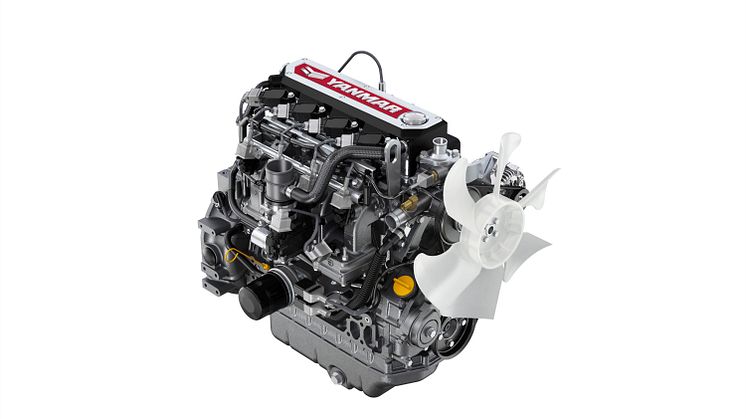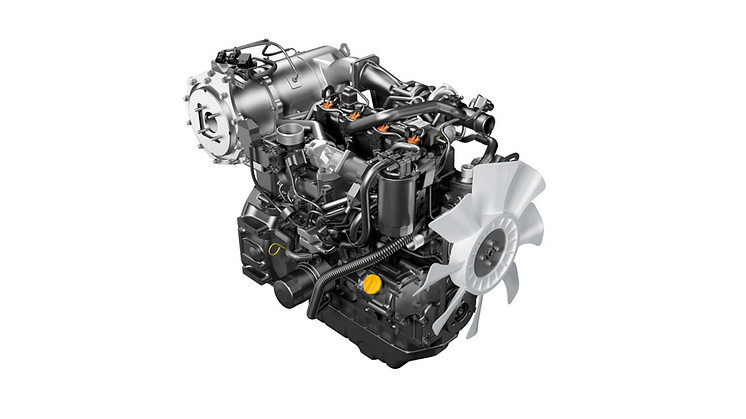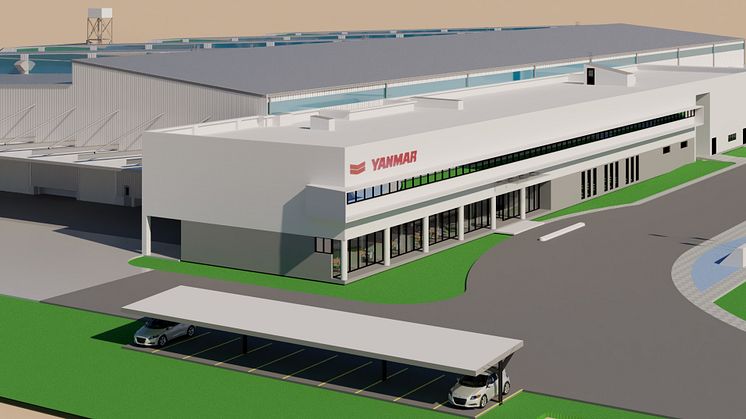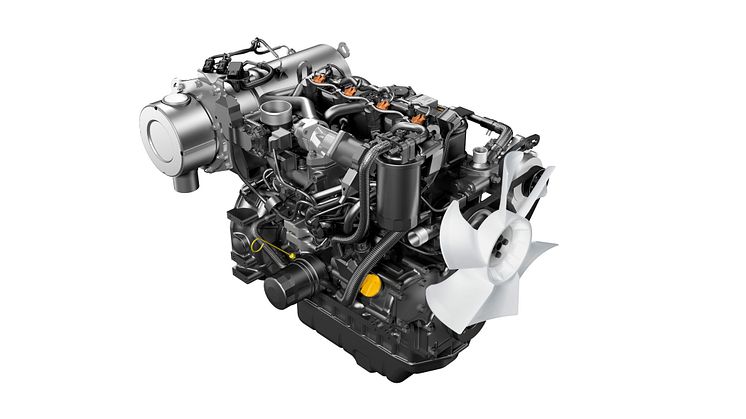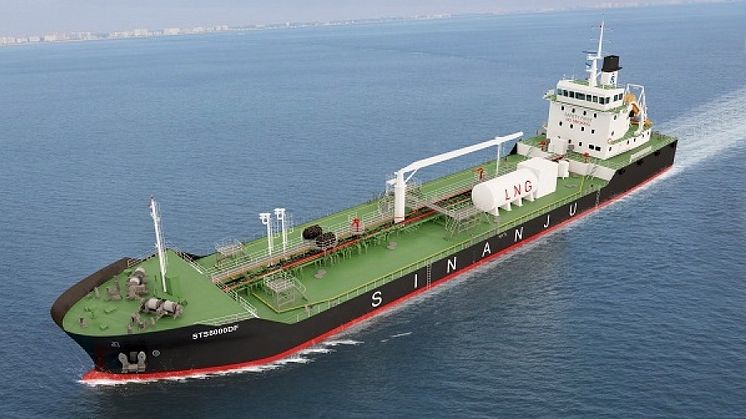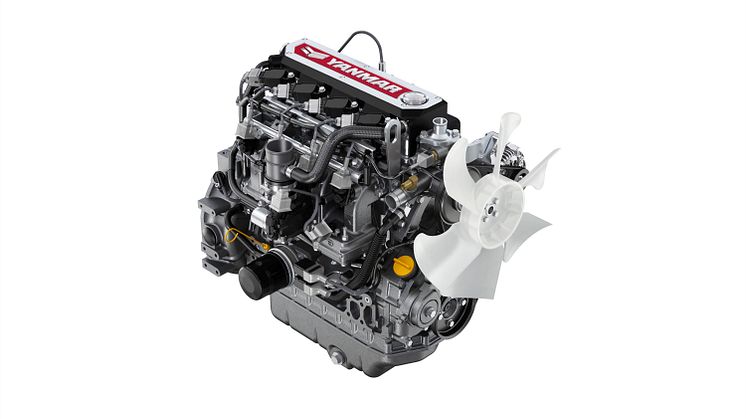
Press release -
Yanmar Develops New Industrial Gas Engines
Munich, Germany (January 28th, 2019) - Yanmar has developed gas-powered industrial engines that utilize LPG (liquid petroleum gas) and meet both U.S. EPA※1 Tier2, CARB※2 Tier4 and EU Stage V emissions regulations. Adding the two clean burning and quiet industrial engine models, 4TN88G: maximum output 45.0kW※3 and 4TN98G: maximum output 63.0kW※3 to its lineup, Yanmar is ready to better meet the diverse needs of its customers. Furthermore, Yanmar has plans to introduce bi-fuel※4 specification models that can run on both LPG and gasoline.
Gas engines produce very little PM (particulate matter)※5, and are comparatively quieter than diesels. This makes them ideal for work indoors and in enclosed areas, where environmental concerns are a major consideration.
Yanmar has more than 30 years of experience working with gas engines. This long-earned experience together with our deep knowledge of industrial diesel engine technology has allowed us to develop a proprietary gas combustion system for high output, fuel efficient and compact engines that display the durability and reliability required of industrial applications and deliver new value to our customers.
Yanmar can now provide customers with a “One-Stop Solution”, whereby Yanmar can offer either a diesel or gas power source in one-stop sales contact, with maximum compatibility to the customer’s equipment.
With the addition of these new gas engines to Yanmar’s existing industrial engine lineup, Yanmar is well placed to meet customers’ demands with a versatile range of power solutions.
【Product information】
Model name: 4TN88G/4TN98G
Mass production schedule: 4TN88G (LPG specifications) in 2020
4TN98G (LPG specifications) in 2021
Main specifications:
| Model | 4TN88G |
| Emission Compliance | EPA Tier2/ CARB Tier4/ EU Stage V |
| Engine Type | Vertical, 4-cycle water-cooled engine |
| Aspiration | naturally aspired |
| Combustion System | Spark ignition/ Pre-mixed/ Stoichiometry |
| Fuel Type | LPG |
| ATS | Three way catalyst |
| Number of Cylinders | 4 |
| Bore x Stroke (mm) | 88 x 90 |
| Displacement (L) | 2.2 |
| Rated Output (WOT*/SAE J1995) (kW/min) | 45 / 2600 |
| Max. Torque (WOT*/SAE J1995) (Nm/min) | 175 / 1800 |
| Overall length x width x height (mm) | 659 x 535 x 701 |
| Weight (dry) (kg) | 175 (without ATS) |
*WOT: Wide open throttle
Main advantages
Higher specific power , Yanmar’s proprietary engine control system optimizes the air intake to achieve even greater power and torque than our diesel engines. The result is uncompromising performance for our customers’ machinery with the benefits of using gas as a fuel.
(1)Class leading fuel efficiency
With long experience in the development of gas engines, a combustion system optimized for LPG has been realized by implementing a high compression ratio and reducing intake pump loss. This has yielded fuel consumption reductions of 10%※8 compared to current mixer systems※9 resulting in longer operational hours for a same sized LPG tank, and reducing the lifecycle cost for the customer.
(2)Endurance and reliability of a diesel engine block
Basing the engine on the superior endurance of Yanmar’s industrial diesel engine crankcase, together with optimized cooling systems and materials for heat resistance in high-temperature components such as cylinder head, intake and exhaust valves, and pistons, means that the endurance and reliability required of industrial engines is realized, even at the high combustion temperatures characteristic of stoichiometric combustion.
(3)Compact engine configuration
Yanmar’s proprietary compact air-fuel mixing system results in a smaller engine (by approximately 9%) by eliminating the conventional gas engines with mixer system. Furthermore, our experience in installing industrial diesel engines to a variety of industrial machinery means that the engine layout is optimized to enable easy installation to forklifts, construction equipment, agricultural equipment and more.
(4)Compatibility with diesel engines
By using the same application components and application software interfaces as those used with the machines and service tools on the market for use with Yanmar’s diesel engines, a high degree of compatibility has been secured between the diesel and gas engine installations.
【reference image】

4TN98G gas industrial engine
New gas engine website:
https://www.yanmar.com/global/engine/new-models/gas
※1 EPA:Environmental Protection Agency in United States
※2 CARB:California Air Resources Board
※3 Maximum outputs are the gross values based on SAE1995.
※4 Bi-fuel engine: Engines that can run on both of LPG and gasoline fuel by implementing each fuel injection system on an engine
※5 PM: Particulate matter are hazardous particles suspended in the air.
※6 Stoichiometric combustion: The stoichiometric mixture for a gas engine is the ideal ratio of air to fuel that burns all fuel with no excess air.
※7 Multi-point injection system: a system that injects gas fuel to each air intake port of the cylinder.
※8 Figures calculated by comparing the tested value of Yanmar’s mixer-type gas engines with the new gas engines.
※9 Mixer system: The system uses air-gas mixer which is designed with the structure of venturi effect.
[About Yanmar]
With beginnings in Osaka, Japan, in 1912, Yanmar was the first to succeed in making a compact diesel engine of a practical size in 1933. Then, with industrial diesel engines as the cornerstone of its enterprise, Yanmar has continued to expand its product range, services, and expertise to deliver total solutions as an industrial equipment manufacturer. As a provider of small and large engines, agricultural machinery and facilities, construction equipment, energy systems, marine equipment, machine tools, and components, Yanmar’s global business operations span seven domains.
Related links
Topics
Categories
Note: Information contained in the news release is valid at the time of publication and may differ from the most recently available information.
[Inquiries for further information]
Public Relations Group Brand Communication Division, Yanmar Co., Ltd.,
TEL: 06-6376-6212 E-mail: newsroom@yanmar.com


